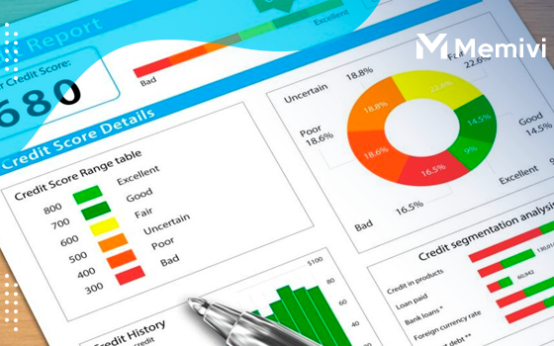
Budgeting is the practice of setting a plan for and allocating resources for a finite set of activities within a given finite time period. The activity may be business-related, such as a business plan, or personal-related, such as a budget. Budgeting is also known as financial planning, money management, and cost-tracking.
Furthermore, budgeting helps an individual or a business to determine how much money they will have at a certain point in time, where that money is needed, and how the money will be spent. Budgeting may be done on a short-term basis to get a better idea of how the current financial situation is, or it may be done on a long-term basis, to help plan for the future.
The importance of budgeting
Budgeting is important because it helps you to make sure your money is being spent wisely. Without budgeting, you may spend more than you should and you may spend money that you don’t have. If you don’t know where your money is going, then it’s impossible to know where to cut back.
It can be hard to stick to a budget, especially when there are so many temptations that are constantly pulling you in the other direction. It can be easy to think that you can’t afford something, so you go and buy it. However, what you might not realize is that budgeting is a skill that needs to be learned. It can be tough at first, but it can also be very rewarding. You just need to take some time, patience, and commitment.
Moreover, budgeting doesn’t have to be hard or stressful. In fact, it doesn’t have to be anything. It can be as simple as writing down your income, expenses and savings every week so that you have a clear view of where your money is going.
7 Practical Budgeting Tips to Help Manage Your Money
Managing your finances is more important than ever before, especially as you have to set yourself up for the future. After all, you don’t want to spend your entire life working and finding that you have no money left at the end of the day. Just because finance is a difficult subject, doesn’t mean you need to be overwhelmed by it. Here are some great budgeting tips for you.
- Decide why you’re doing it
When deciding why you budget, you should ask yourself a few questions. First, ask yourself if the money is meant to be used for a specific purpose.
Next, you should ask yourself what you are financially capable of. If you are not able to afford something, then you should not buy it. If you are able to afford it, you should ask yourself if it is an investment or not.
Finally, you should think about how much you are willing to spend. If you are not willing to spend much, then you should put the money towards paying down debt or investing. If you are willing to spend more than you are capable of, then you should put the money towards a special purchase or the things that you actually enjoy.
- Use budgeting as a way to empower your spending habits
Budgeting can be a tough task. However, it can also be rewarding and empowering. You’ll be able to determine how much you can afford to spend on various items and find out what is actually important to you. As a result, you’ll be able to spend your money the way you want to, and this will make you happy. It will also help you make more money.
Remember, keeping a budget is a powerful step in developing a savings plan.
- Test out the different methods of budgeting
Many people find it difficult to effectively manage their money. This can lead to overspending, a lack of financial planning, and a lack of financial knowledge. It is important to be able to effectively manage your money in order to be financially stable.
You can make your life easier by learning how to use different methods of budgeting before you start your life as a responsible adult. Just remember, there are different ways to budget and many of them have their pros and cons. So it is your due diligence to research each of them and find out what truly works for you.
- Make sure to prioritize expenses and goals
Budgeting is a fairly straightforward process. When you create a budget, you have to decide how much you can afford to spend on various things, such as rent, food, gifts, and travel. You should also consider things like your goals, and your long-term and short-term goals. You should also make sure to include expenses. The sooner you do this, the easier it will be to see how much you need to spend on each category, and then you’ll know what to spend your money on – a great starting point towards a financial independent life.
- Automate bills in a responsible way
Too many people have to make calls to the bank, or to their creditors to make payments. This can be a hassle, and take up time that you could be spending on something else. You can automate bills in a responsible way, which means that you can make payments using a pre-determined method, such as through a bank account, credit card, or checking account. This will save you time, and allow you to focus on something else.
Moreover, you can set up your bills to automatically make payments on a schedule, which saves you the time and effort of having to remember to pay them yourself.
- Leave room for emergencies
When you create a budget, it’s easy to forget the expenses that are going to come up unexpectedly. The problem with that is that they could really ruin your budget. One of the best ways to avoid this is to make sure you leave room for emergencies. This is a great concept because you don’t want to get stuck without the cash to cover an emergency.
Also, by budgeting for the unexpected, you will be able to save for those high-cost emergencies. Another way to save for emergencies is to find a side hustle. Side hustles are not usually the most lucrative, but they can be a great way to get yourself out of a jam. When you find yourself in a tight spot, you can sell that product or service to cover your expenses.
- Be knowledgeable on your budgeting method
Budgeting is one of the most important things to be knowledgeable on. It includes how to manage money, your credit, and even your expenses in order to be financially successful. If you are not knowledgeable on the budgeting method you have, you may have a very hard time on sticking to it which can eventually ruin the way you handle your money.
Budgeting is a Practical Business Skill
Budgeting is a practical business skill, as it gives you a plan for all of the resources that you have and what you will spend them on. It also gives you a plan for potential changes in the future. You should create a budget that is flexible and can be changed as you grow with the company. However, even before the budget is created, planning is the key.
All in all, you can’t run a business with the right cash flow if your personal budgeting method is not stable. With that, make sure to practice the budgeting tips said above before deciding to open up a business that requires full attention.
Final thoughts

Did you know that many people who open a budgeting app or service end up quitting within the first month? This is because they don’t know how to use it and all just end up wasting time. Don’t let this happen to you!
Make sure that you take some time to read through these 7 budgeting tips to get a better understanding of how you can manage your money in the most effective way. Our blog post is full of valuable information on budgeting and how to get started on managing your personal or business finances easier.


 Best Allowance and Chore App for Kids <p class='sec-title' style='line-height: normal; font-weight: normal;font-size: 16px !important; text-align: left;margin-top: 8px;margin-bottom: 0px !important;'> As parents, we all know how challenging it can be to teach our children the value of money and how to manage it effectively. </p>
Best Allowance and Chore App for Kids <p class='sec-title' style='line-height: normal; font-weight: normal;font-size: 16px !important; text-align: left;margin-top: 8px;margin-bottom: 0px !important;'> As parents, we all know how challenging it can be to teach our children the value of money and how to manage it effectively. </p>  Victory for Consumers as All Three Credit Bureaus Now Offer Weekly Free Report Access <p class='sec-title' style='line-height: normal; font-weight: normal;font-size: 16px !important; text-align: left;margin-top: 8px;margin-bottom: 0px !important;'> In a victory for consumers everywhere, all three credit bureaus have announced that they will now offer free weekly credit reports. </p>
Victory for Consumers as All Three Credit Bureaus Now Offer Weekly Free Report Access <p class='sec-title' style='line-height: normal; font-weight: normal;font-size: 16px !important; text-align: left;margin-top: 8px;margin-bottom: 0px !important;'> In a victory for consumers everywhere, all three credit bureaus have announced that they will now offer free weekly credit reports. </p>  Revolutionizing Comfort: The Best HVAC Software of 2024 <p class='sec-title' style='line-height: normal; font-weight: normal;font-size: 16px !important; text-align: left;margin-top: 8px;margin-bottom: 0px !important;'> As technology advances, it's becoming increasingly more important to use software that can help streamline your business and keep you competitive. </p>
Revolutionizing Comfort: The Best HVAC Software of 2024 <p class='sec-title' style='line-height: normal; font-weight: normal;font-size: 16px !important; text-align: left;margin-top: 8px;margin-bottom: 0px !important;'> As technology advances, it's becoming increasingly more important to use software that can help streamline your business and keep you competitive. </p>